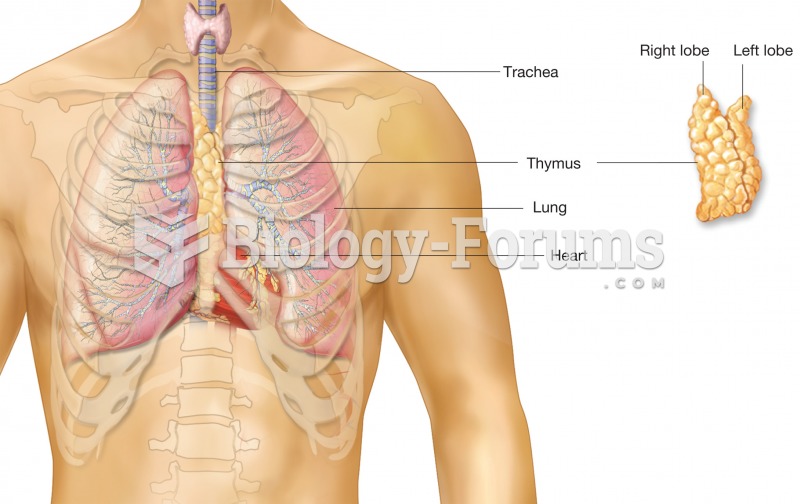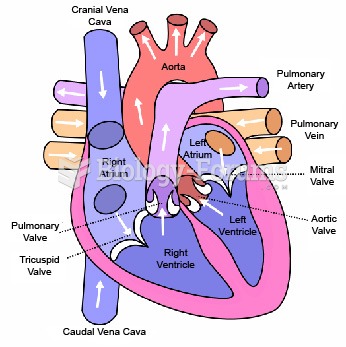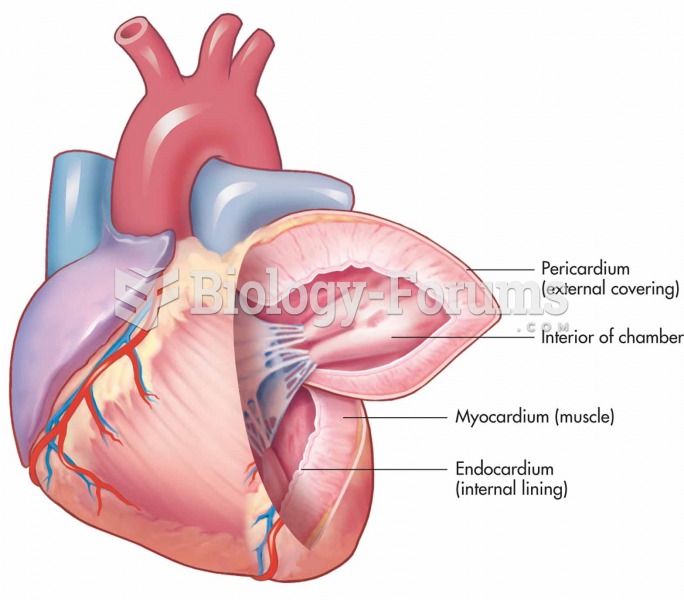|
|
|
Pregnant women usually experience a heightened sense of smell beginning late in the first trimester. Some experts call this the body's way of protecting a pregnant woman from foods that are unsafe for the fetus.
Recent studies have shown that the number of medication errors increases in relation to the number of orders that are verified per pharmacist, per work shift.
In the United States, congenital cytomegalovirus causes one child to become disabled almost every hour. CMV is the leading preventable viral cause of development disability in newborns. These disabilities include hearing or vision loss, and cerebral palsy.
For pediatric patients, intravenous fluids are the most commonly cited products involved in medication errors that are reported to the USP.
Allergies play a major part in the health of children. The most prevalent childhood allergies are milk, egg, soy, wheat, peanuts, tree nuts, and seafood.
 The thymus gland. This gland lies in the mediastinum of the thoracic cavity, just above the heart. I
The thymus gland. This gland lies in the mediastinum of the thoracic cavity, just above the heart. I
 The cardiovascular system. A schematic view of the closed circulation of blood. The heart is section
The cardiovascular system. A schematic view of the closed circulation of blood. The heart is section





